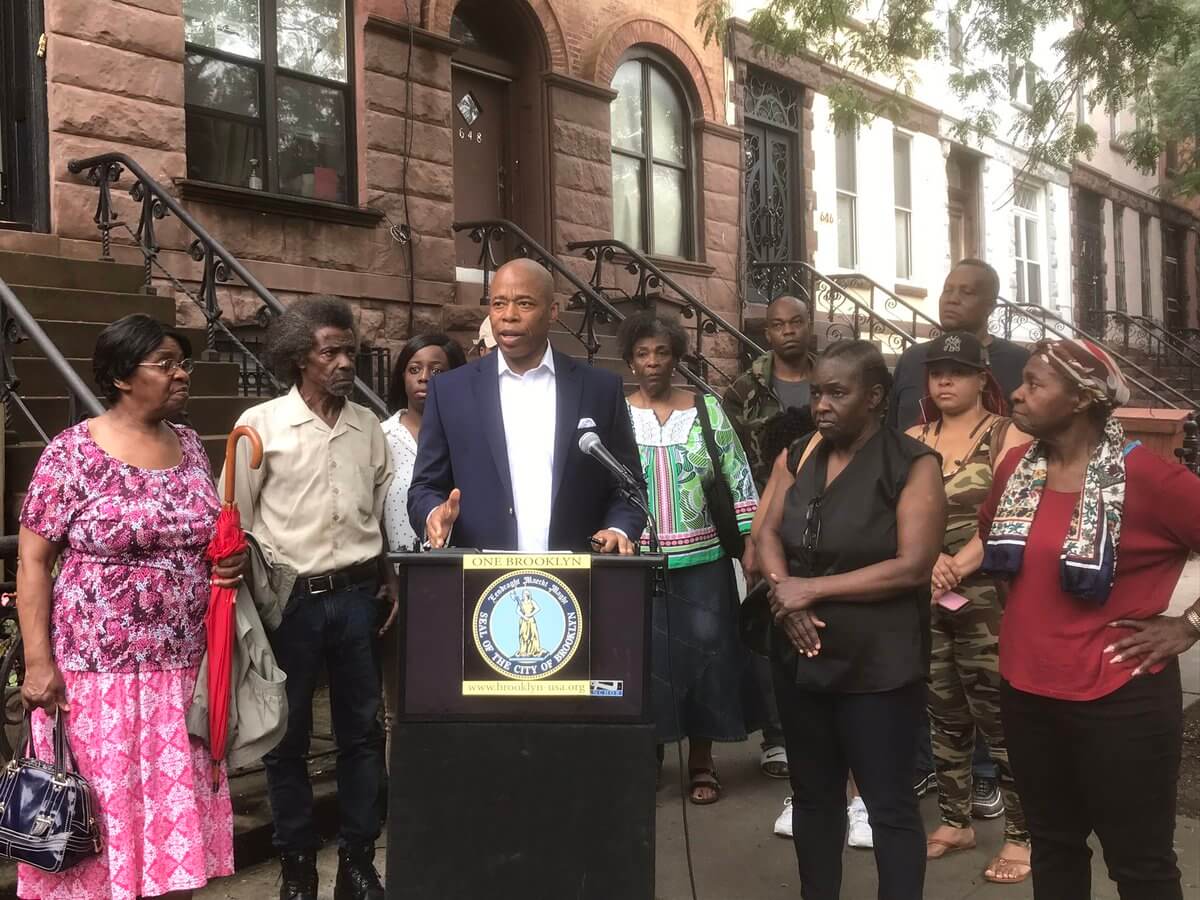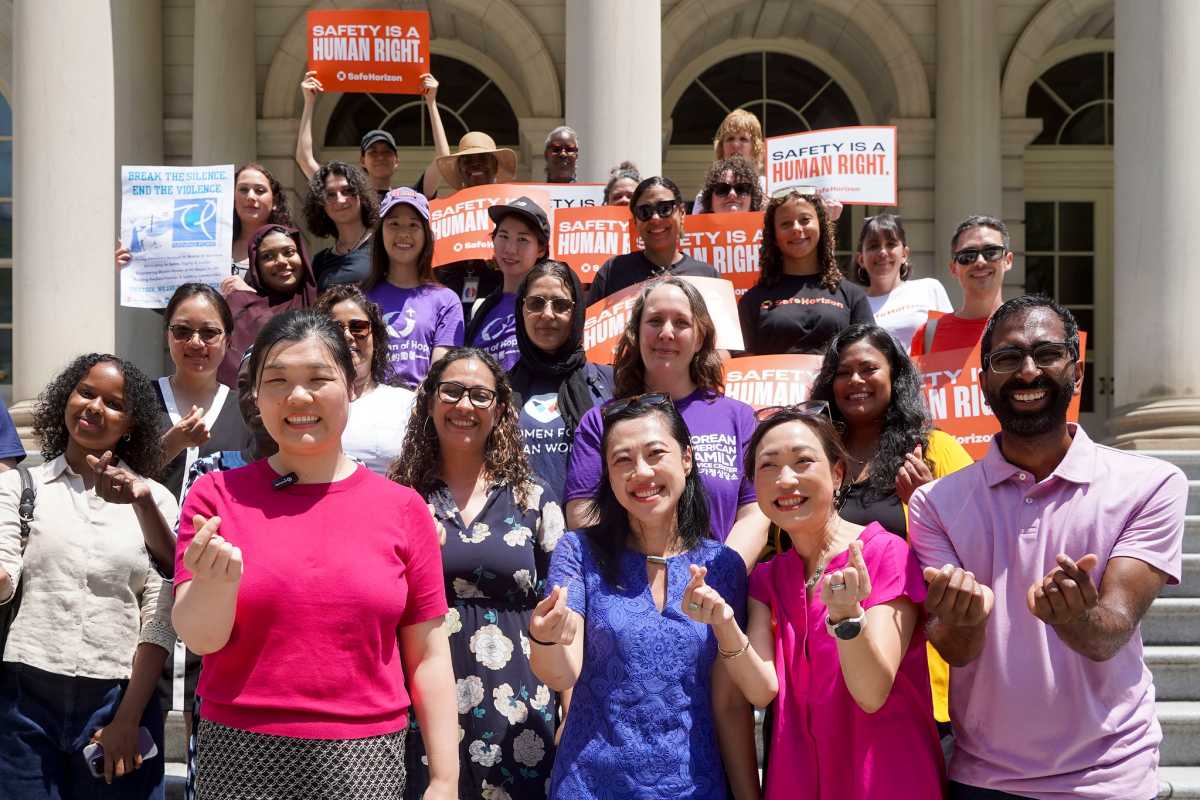A Bedford-Stuyvesant family embroiled in a years-long legal battle with a fraudster who stole their brownstone will be able to stay in their home after settling the case in court.
Dairus Griffiths, the owner of a Halsey Street brownstone since the early 1990’s, says he was tricked into unknowingly selling his house by a representative of August Development in 2018. Since then, his family has been involved in a legal battle to stay in their home of over 30 years, finally prevailing with a confidential settlement last month.
“I feel ecstatic, I feel relieved, I feel like I can finally move on and relax with my own personal life,” said Doris Briggs, the daughter of Griffiths, who grew up in the Halsey Street home. “It’s been extremely exhausting.”
Griffiths, an immigrant from Jamaica who retired from the construction industry, says a man named Eli Mashieh from August Development first approached him in 2014 when Griffith was struggling financially and worried he would lose his home. Mashieh allegedly offered to help, but eventually swindled Griffiths into signing over the deed of his home a sale of just over $600,000, when it is in fact worth nearly $1.5 million, according to his daughter.
Griffith told reporters in 2019 he signed the deed over on a street corner on the hood of a car. Days later, he told Mashieh he had changed his mind, but Mashieh said it was too late.
What followed was a years-long legal battle that looked hopeless for Griffths and his family, until their plight gained the attention of the press and public officials like Borough President Eric Adams, who held a press conference in front of their house in 2019 calling for an investigation into the sale by the Kings County District Attorney’s office.
“We received a lot of ‘no’s,’ a lot of ‘I can’t help you’s,” said Briggs. “That was a very tough time.”
The case took its toll on Griffiths, Briggs told Brooklyn Paper. Her father bought the home for his growing family in the 1990’s, and intended to keep it in the family, only to see someone attempt to strip it away from him.
“You work all your life, you go through ups and downs and challenges, but you finally get on a good footing and you’re right where you need to be to retire, and have your monthly payments in order, and then boom — someone’s saying they’re going to take your home,” she said.
After their case received more attention, the Griffiths were able to retain pro-bono representation from the legal firm Sher Tremonte, who secured a temporary restraining order against August Development — which safeguarded the family from eviction — and filed a lawsuit against August under the Home Equity Theft Prevention Act, eventually leading to the settlement that allowed Griffiths to stay in his home.
While Griffiths will not be evicted, many Brooklyn families have not been as fortunate.
Deed theft has become a rampant problem, especially in central Brooklyn neighborhoods like Bedford-Stuyvesant and Crown Heights, where mostly Black homeowners have seen their property values skyrocket in recent years. For the Griffiths to stay in their home, it required attention from the media, politicians, and pro-bono legal representation, something many victims of deed theft, most of whom are seniors, have not been granted.
“This hard-fought victory should be celebrated, but the larger crises of deed fraud and wrongful property seizures, particularly in Black and Brown areas of Brooklyn, demand real policy solutions,” said Borough President and Democratic mayoral nominee Adams. “No other homeowner should have to endure what the Griffiths went through to get their home back.”
Recent census data has shown that Bedford-Stuyvesant lost 22,000 Black residents, and gained 30,000 white residents over the past decade, a change Briggs has seen unfold firsthand on Halsey Street.
“All around us on the block you see the whole block changing, gentrification is changing everything, some for the good, some for the worse,” she said. “We grew up on a block where we can walk in each other’s houses, and have the doors open and you know your neighbor, to ‘who’s coming next?’”























